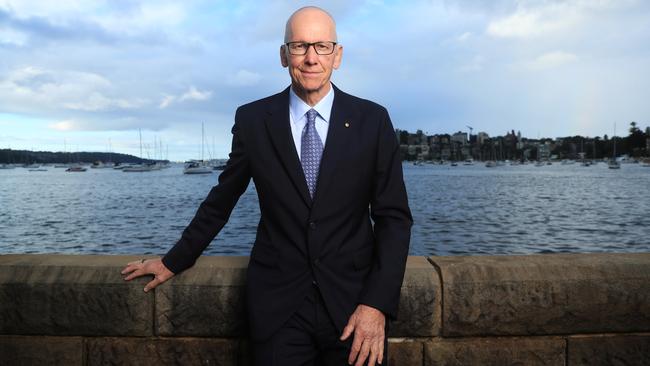Geoff Wilson takes aim at Nick Bolton after big loss by Keybridge Capital
The investment firm run by Nick Bolton has reported a big loss, with a major shareholder – richlister Geoff Wilson – saying the red ink is not sustainable.

The investment firm run by Nick Bolton, famed for his involvement in the failed BrisConnections toll road project, has reported a big loss, with a major shareholder – richlister Geoff Wilson – saying the red ink is not sustainable.
Melbourne-based Keybridge Capital reported a loss of almost $9m for the year to June 30 after taking a hit on cryptocurrency trading, legal fees and other investments.
Mr Bolton now is reportedly seeking a big payday for Keybridge from options in a closed fund run by investment giant Magellan, a strategy that Mr Wilson calls “naive”. Wilson Asset Management owns 43 per cent of Keybridge and has previously attempted a takeover.
Keybridge, which listed on the ASX in 1999, also holds stakes in candy manufacturer Yowie, Molopo Energy, petroleum explorer Metgasco and RNY Property Trust.
As a 26-year-old, Mr Bolton famously pitted himself against the likes of Macquarie Bank, Leighton and Deutsche Bank in the 2009 BrisConnections saga. He outplayed the three giants, banking a $4.5m cheque from Leighton in return for handing over voting rights that could have held sway over the $4.8bn Airport Link toll-road in Brisbane.
But in recent years Mr Bolton has become better known for his scraps with Mr Wilson, a legendary figure in the investment community with a personal fortune in excess of half a billion dollars. “Keybridge has been a very disappointing investment over the years,” Mr Wilson said. “The Keybridge board would have been better off paying Nick to do nothing. Nick has destroyed value.” Mr Bolton denied those claims, saying many of the firm’s investments were poised to recover.
Mr Wilson warned that Keybridge’s losses could not continue, with the firm risking insolvency on its present trajectory. He questioned the firm’s investments in assets such as cryptocurrency as well as an options play involving fund giant Magellan.
Keybridge holds in excess of 100 million options tied to Magellan’s ASX-traded global share fund in a bid to force a possible wind-up of the $2.8bn trust, and make quick profit, a strategy labelled “naive” by Mr Wilson.

The fund is trading at an 12 per cent discount to the underlying value of its portfolio of global stocks, attracting the attention of bargain hunters such as Keybridge, although the discount has shortened from 22 per cent.
The clock is now ticking on those options, which are due to expire in March. Keybridge would need to hold at least 5 per cent of outstanding units to call for a meeting on winding up the fund, and if a meeting proceeded, the resolution would require at least 75 per cent support by units voted. The relevant options, originally gifted to investors who can on-sell them, allow holders to buy into the fund at a 7.5 per cent discount to its net asset value. At present, they are out of the money and were they ever to be exercised by Mr Bolton, the cost would be in the hundreds of millions.
Magellan is reported to be actively addressing the discount through improved performance and an active buyback. Magellan declined to comment.
Mr Bolton acknowledged that Keybridge’s result for the year was disappointing. “However, I will push back on criticism from Geoff Wilson,” he said. “Our major detractor for the last couple of years has actually been our investment in Geoff’s WAM Active, dropping some 40 per cent.”
He said Mr Wilson criticised the company’s strategy in Magellan, while at the same time holding a material position in the fund with the same objective of closing the discount. “It seems counterintuitive from a major shareholder and we would hope for more support from him,” Mr Bolton said. “Our investment in Yowie does not fairly reflect the intrinsic value of our material position in a low liquidity stock.”
He said Keybridge’s investment in RNY Property Trust, which is exposed to the US property market, had been hit by higher interest rates and other economic factors but he was hopeful of a turnaround this year. Crypto arbitrage trade had a disappointing year, but remained profitable since the strategy commenced. “We have also incurred significant legal expenses during the year, which, all going well, will result in positive returns in the future,” he added.






To join the conversation, please log in. Don't have an account? Register
Join the conversation, you are commenting as Logout